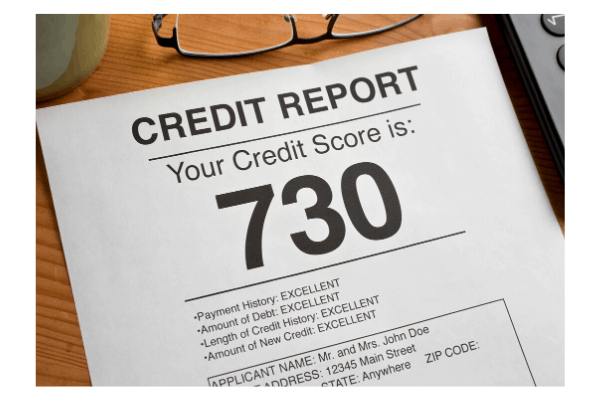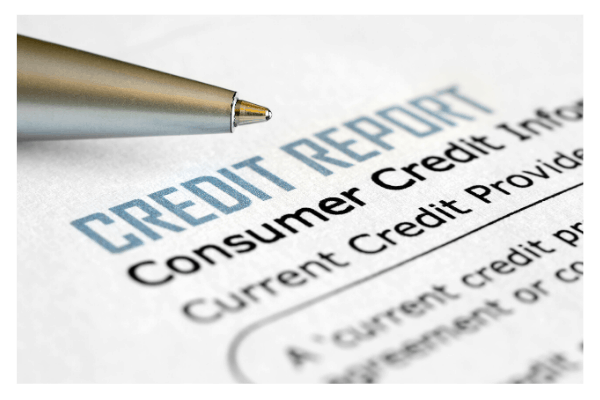Many people do not have a thorough understanding of the credit system and how it works. I have had many people sit at my desk as who had at some point made decisions about their credit that eventually hurt their chances of getting a loan.
Lenders use credit scores as a guide in making their credit decisions. It is important to understand how the credit reporting system works so when you apply for a loan, you have confidence that you will be approved. Your credit score gives lenders the information they need to make a decision about extending credit. Scoring models are always changing. It is important that you have a clear understanding of how Credit Scores work in 2020.
Why Do You Need A Good Credit Score in 2020?
In order to make large purchases, like a home or car, many people will use credit and get a loan rather than paying in cash. The thought is that they can get what they need now and pay for it over time rather than not getting what they need now and waiting until they save the money. If your credit score is not high enough, you could be declined for a loan.

After the 2008 recession, the credit markets became very particular to who they lent money to. Credit guidelines became so impossible people had a difficult time finding the loans they needed to purchase a home.
Now that 2020 is here, the guidelines have certainly eased up. But with COVID and other factors affecting our economy, how long before another recession affects the availability of credit?
These days it is almost impossible for people to save the money they need to purchase a newer car or a home for cash. Making monthly payments is an easy way to make larger purchases.
Others use credit cards to make more short term purchases. Many people will use their credit cards to get points and cashback from their purchases. We never recommend putting larger purchases on a credit card unless you have a special promotional rate for the purchase.
Having an excellent credit score will not only increase your chances for approval but will also get you better rates and terms on your loans. Having excellent credit is not a guarantee for approval. Lenders look at many factors when determining creditworthiness.
The Four C’s of credit come to mind when discussing lender guidelines.
- character – Will you repay the loan? Do you pay your bills on time?
- capacity – What are your verified income sources?
- capital – What is your net worth, assets and cash on hand?
- collateral – If you default, is the loan secured by an asset the bank can use to recoup their money?
Your credit report can reflect your character, when it comes to repaying your debts, and is a good source of information for the lender to determine if you are a good candidate for the loan you are requesting. You will want to learn the 5 Factors that are important to your FICO credit score.
What Is Considered A Good Credit Score?
Credit scores ranging from 580 to 669 are considered fair. Anything below a 580 will have a difficult time getting financing. There are loan programs that are for the 580 to 669 range but they will typically offer higher rates and less favorable terms.
A credit score of 670 or higher is considered a good credit score. Anything below 670 will jeopardize your chances for approval of a loan with the best loan terms and rates. In other words, you may still be able to get the loan but it will be more expensive because you will pay a higher rate over someone who has a credit score in the 700s.

Some unsecured loans and high-end credit cards will require a 700+ score for approval. The credit markets are always changing so what may be offered today is not necessarily going to be there next year. Conversely, you can be turned down for a loan today and next year they may change the requirements and you will be approved under the same circumstances.
A credit score of 740 to 799 is considered very good and a credit score over 800 is considered excellent. You will get the best rates and terms when your credit score is over 740.
| Credit Score | Rating | % of People |
|---|---|---|
| 580-669 | Fair | 17% |
| 670-739 | Good | 21% |
| 740-799 | Very Good | 25% |
| 800-850 | Exceptional | 21% |
The Difference Between FICO and VantageScore
The biggest difference is that most lenders do not use VantageScore to determine eligibility for a loan. Most lenders still use the FICO Scoring models in determining credit worthiness of a borrower.
With that being said, many consumers are using the VantageScore as a guide. Mostly because they can get it for free from Credit Karma. However, if your lender will not use that score, VantageScore may give you a false sense of security when it comes to your credit score.
Often, I have seen people with a much higher VantageScore. When they go to apply for a loan, they are sorely disappointed when the FICO score is lower than what they thought it was because they were looking at their VantageScore instead.
I actually had a lady who had applied for a loan at my branch scream at me over the phone because our FICO Score did not match what she was seeing on Credit Karma. I had to explain to her the differences and that at that time no banks, to my knowledge, were using VantageScore to determine credit eligibility.
It important that you know which score you are looking at and which score your lender will use. Your score can vary from bureau to bureau and there are several different credit models that lenders can choose to purchase from FICO.
What Is The Purpose Of A FICO Score?
90% of lenders us some type of FICO Score when making lending decisions. There are currently 19 FICO Score models. This is why you might hear that you have a different score when applying for credit. Specialty credit reports can determine eligibility for certain loans like auto loans and mortgages.
Your FICO Score will help lenders to determine if they are willing to lend you money. Loan guidelines have minimum score requirements. The terms and rates can change depending on your credit score too.
The sole purpose of a FICO Credit Score is to determine the likelihood of you paying back a loan. The higher the score, the less likely you are to default.
How Will The New FICO Score Model Affect You?
In an effort to compete with VantageScore, FICO has come up with a more predictive score model to assist lenders with making good lending decisions.
The new scoring model, FICO Score 10 Suite offers FICO 10T and FICO 10..
FICO 10 T, will use two years’ worth of “trended data” to provide lenders more insight into how consumers manage credit. FICO 10 does not use trended data, but FICO 10 T does.
What is trended data? Here is what Experian says.
Experian’s Trended Data provides key balance and payment data for the previous 24 months to allow lenders to take advantage of behavior trends to determine how individuals are utilizing their credit – whether they are carrying balances, consolidating or paying off their balances each month.
Experian.com
This means that if you are carrying a higher balance each month over the previous month, the scoring model will pick that up and use it as a factor in determining your credit score. If you only carry a high balance around the holidays, your score may not be penalized.
Now that FICO is using trended data, they will have similar offerings to compete with VantageScore.
However, lenders are slow to make any changes to their lending models. So it does not mean they will actually use FICO 10. This new system will be rolling out mid or late 2020.
FICO has had many score models come and go. It will be interesting to see if this is here to stay considering that VantageScore may be starting to take market share away from FICO.
How Do I Monitor My Credit?
There are several credit monitoring services and many of them are free. Services like Credit Karma offer free credit reports from Equifax and TransUnion. But you will not be able to see Experian. You will have to go to the Experian site directly. Also, Credit Karma offers to be able to view your VantageScore but not your FICO Score. As you have learned, 90% of lenders will only use a FICO Score.
If you want to see all of your credit reports in one central location with your actual FICO Scores, we recommend, My FICO. You can check it out with our link below.
FICO Advanced — Get 3-Bureau Credit Reports and FICO ScoresWhy Do I Have Three Different Credit Scores?
People often wonder why they have three different credit scores. You actually have as many credit scores as there are credit models. But the main reason people think they have three different credit scores is that there are three different credit bureaus. Here is why:
- The lenders may not be reporting your information to all three bureaus. They may only choose to report to one credit bureau.
- The lender may have ordered a specialized credit report like an auto loan or mortgage credit report.
How Do I Raise My Credit Score?
You can raise your score by building a solid credit history. You must make your payments on time and keep your revolving credit card balances low. Managing your credit responsibly is the best way to raise your credit score.
We do offer tips on how to do this if you are credit invisible, meaning no credit score or a low credit score due to a lack of credit. If you are trying to repair and restore your credit report there are many things you can do to speed up the process like hiring a credit repair company that is reputable or trying to do credit repair on your own by using our guides. You can also apply for new credit to start the process of building a strong credit file.
Pin it for later!




